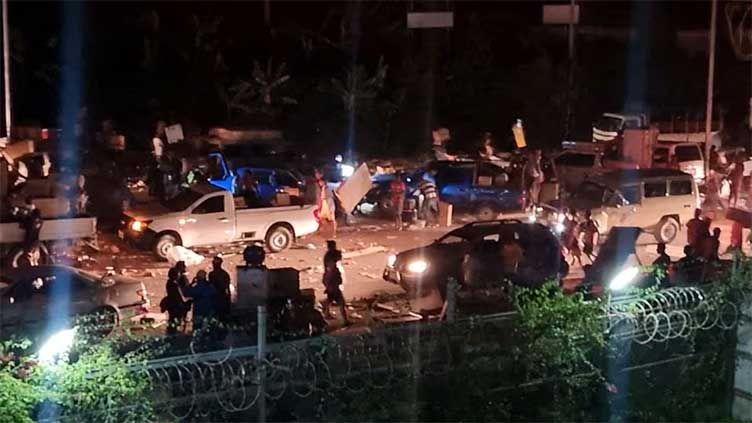Quiet streets, fuel lines follow declaration of emergency in Papua New Guinea

World
Prime Minister Marape declared a 14-day state of emergency after public sector protest over pay
SYDNEY (Reuters) – Soldiers and police patrolled the quiet streets of Port Moresby on Friday morning as people joined long lines for fuel a day after Papua New Guinea declared a state of emergency in response to a massive outbreak of rioting and violence.
Prime Minister James Marape declared a 14-day state of emergency late on Thursday, suspending several officials and putting more than 1,000 soldiers on standby, after a police and public sector protest over pay on Wednesday descended into rioting and looting that killed at least 16 people.
The city had returned to a "new normal" on Friday morning, with police and soldiers on the streets and long lines at petrol stations, according to Matt Cannon, who heads the local branch of not-for-profit emergency responder service St John Ambulance.
"We're expecting the supermarkets that are functioning to reopen today and I'm hearing they have increased security to cater for potentially large numbers of people," Cannon said.
The unrest was sparked when police and other public servants went on strike on Wednesday over a pay cut that officials later blamed on an administrative glitch.
Within hours, thousands thronged the streets looting and rioting against a backdrop of smoke and burning buildings. A mob also tried to break through the gates outside the prime minister's office.
Nine people were killed in the rioting in capital city Port Moresby and seven were killed in Lae, in the country's north, Australian state broadcaster ABC reported on Thursday, citing police.
But things were quiet on Friday when employee Eddie Allo took the bus to work at the Port Moresby General Hospital. Most vehicles on the roads were government-owned and many people were short on fuel because gas stations had been closed, he said.
"Everything is at a standstill now," Allo said by phone. "Not many people are on the street and the police and army are patrolling around the areas on foot. No looting is going on."


